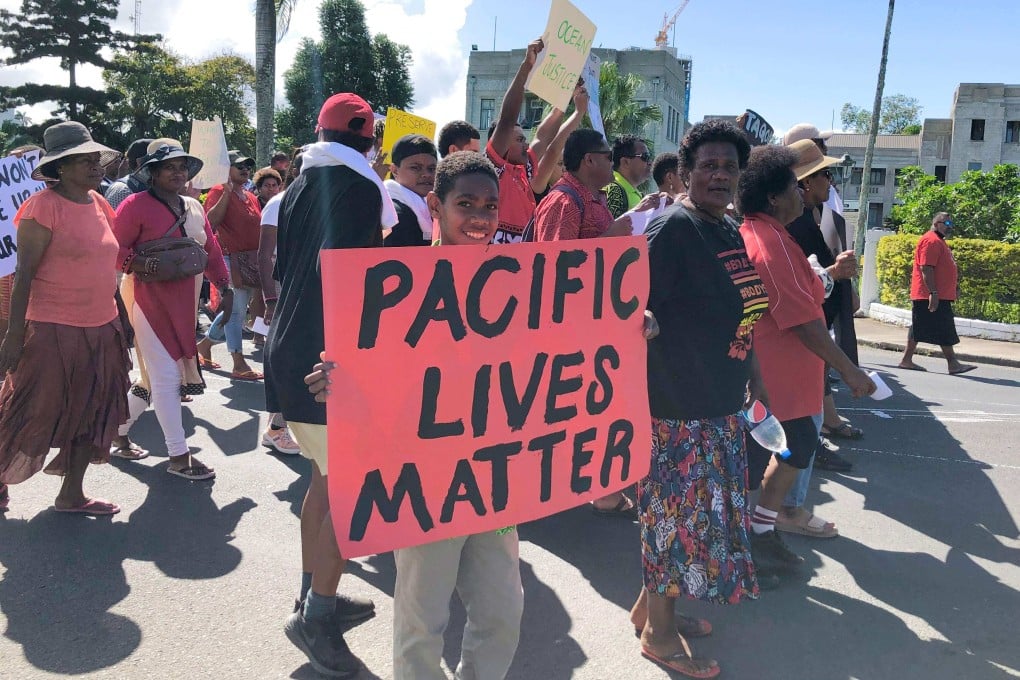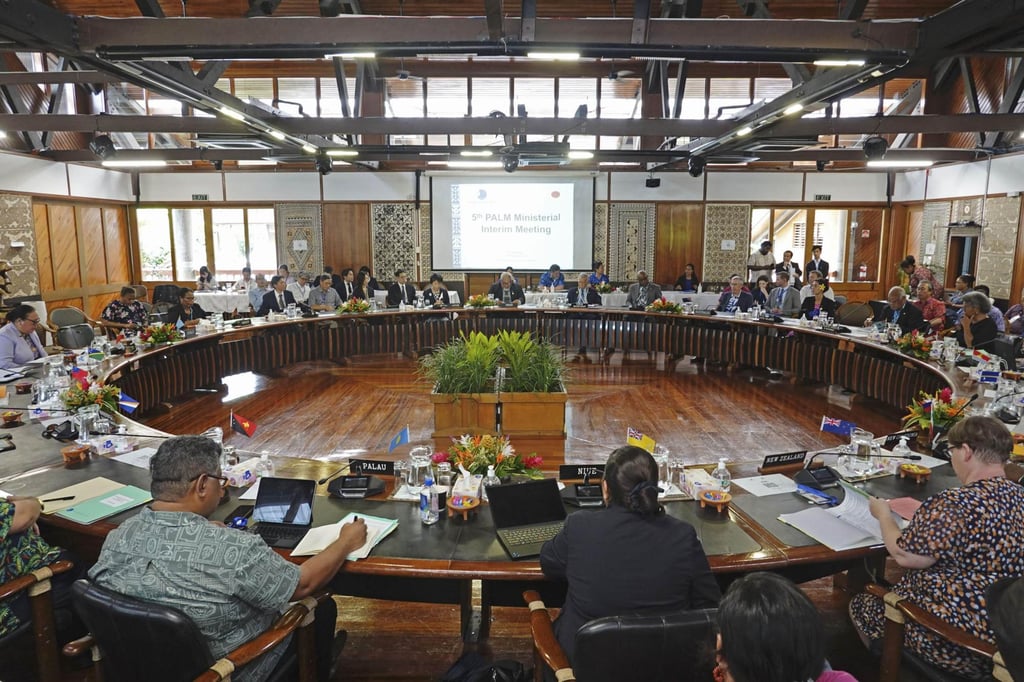As China’s Pacific influence grows, Japan eyes deeper ties with island nations amid their domestic woes
- Japan has supported the region by setting up hospitals, building roads and bridges, and assisting in climate change mitigation and disaster relief
- Tokyo’s renewed focus on Pacific nations comes amid regional concern over Fukushima waste water discharge and as Chinese influence grows


Japanese Foreign Minister Yoko Kamikawa told reporters she agreed with the 18-member Pacific Islands Forum (PIF) on the importance of the “international rules-based order”.
She added that Japan would continue to provide explanations based on “scientific evidence” about the release of treated waste water from Fukushima.
The gathering aimed to lay the groundwork for the 10th Pacific Islands Leaders Meeting – held once every three years since 1997 – set to convene in Tokyo this July.
Given Japan’s attempts to understand local needs, economic development and climate change mitigation, including disaster relief, “would remain a priority”, said Kei Koga, an associate professor in the public policy and global affairs programme at Singapore’s Nanyang Technological University.